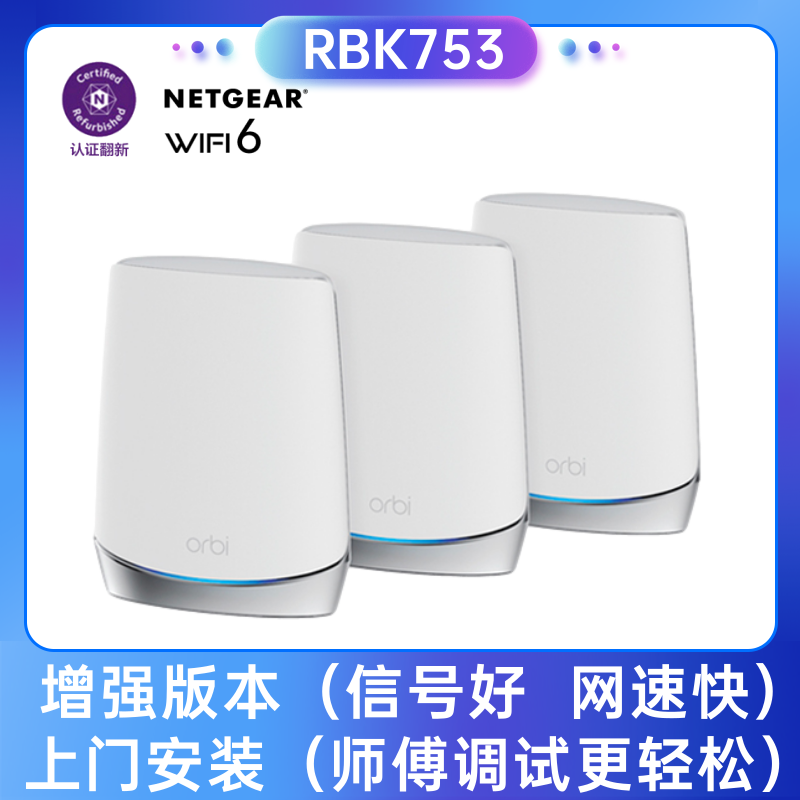"深度解析:家庭网络之核心——路由器"
观想沮
2024-10-20 09:30:55
0次
深度解析:家庭网络之核心——路由器
在当今的数字化时代,家庭网络的核心设备——路由器,扮演着至关重要的角色。作为连接家庭内各种电子设备和外部网络的桥梁,路由器已经成为了现代家庭不可或缺的一部分。本文将深度解析路由器的功能、工作原理以及如何选择合适的路由器。
一、路由器的功能
路由器的主要功能是实现网络之间的数据传输。具体来说,它具有以下功能:
1. 连接内外网络:路由器能够将家庭内部的网络与外部的互联网连接起来,使家庭用户能够访问互联网资源。
2. 数据转发:路由器能够将数据包准确地转发到目的地址,实现网络通信。
3. 防火墙功能:路由器具备一定的网络安全防护功能,能够过滤掉一些恶意攻击和不良网站。
4. 无线信号覆盖:对于带有无线功能的路由器,还能够实现家庭无线信号的覆盖,方便家庭成员使用各种无线设备。
二、路由器的工作原理
路由器的工作原理主要基于网络层的数据传输。具体来说,当用户发出访问互联网的请求时,路由器会根据预设的路由表将数据包发送到目标地址。在传输过程中,路由器会根据数据的源地址和目的地址、网络状态等因素选择最优的传输路径。同时,路由器还会对数据进行加密、压缩等处理,以提高数据传输的效率和安全性。
三、如何选择合适的路由器
在选择合适的路由器时,需要考虑以下几个方面:
1. 带宽和速度:根据家庭网络的需求选择合适的带宽和速度,以确保网络连接的稳定性和速度。
2. 无线标准:根据家庭成员的设备情况选择适合的无线标准,如WiFi 5或WiFi 6等。
3. 品牌与售后:选择知名品牌的路由器可以保证质量和售后服务的可靠性。 4. 功能与安全性:根据家庭的实际需求选择具备相应功能的路由器,如防火墙、家长控制等。同时,还要注意路由器的安全性,选择具备加密功能的路由器。 5. 外观设计:根据个人喜好和家庭装修风格选择合适的外观设计。 四、总结 作为家庭网络的核心设备,路由器的功能和作用不容忽视。了解路由器的功能、工作原理以及如何选择合适的路由器对于提高家庭网络的稳定性和安全性具有重要意义。在选择路由器时,要综合考虑带宽、速度、无线标准、品牌、功能、安全性和外观设计等因素,以选择最适合自己家庭的路由器。 Router: The Core of Home Networking In today's digital era, the router, as the core device of the home network, plays a crucial role. As a bridge connecting various electronic devices in the home and the external network, routers have become an indispensable part of modern households. This article will delve into the functions, working principles, and how to choose a suitable router of the router. I. The Function of Router The main function of the router is to achieve data transmission between networks. Specifically, it has the following functions: 1. Connecting internal and external networks: The router can connect the home network to the external Internet, allowing home users to access Internet resources. 2. Data forwarding: The router can accurately forward data packets to the destination address to achieve network communication. 3. Firewall function: The router has certain network security protection functions, able to filter out malicious attacks and malicious websites. 4. Wireless signal coverage: For routers with wireless functions, they can also cover wireless signals in the home, facilitating home members to use various wireless devices. II. Working Principles of Router The working principle of the router is mainly based on data transmission at the network layer. Specifically, when a user sends a request to access the Internet, the router sends the data packet to the target address according to the preset routing table. During transmission, the router selects the optimal transmission path based on factors such as source and destination addresses and network status. At the same time, the router also performs operations such as data encryption and compression to improve data transmission efficiency and security. III. How to Choose a Suitable Router? When choosing a suitable router, the following aspects need to be considered: 1. Bandwidth and speed: Select an appropriate bandwidth and speed based on the needs of the home network to ensure network stability and speed. 2. Wireless standards: Choose a suitable wireless standard based on the devices of household members, such as WiFi 5 or WiFi 6, etc. 3. Brand and after-sales service: Choosing a well-known brand router can ensure the reliability of quality and after-sales service. 4. Function and security: Select a router with corresponding functions based on actual household needs, such as firewalls and parental controls. At the same time, pay attention to the security of the router, choose routers with encryption functions. 5. Design: Select an appropriate design based on personal preferences and home decoration style. IV. Summary: As a core device相关内容
热门资讯
路由器的进化史:从有线到无线,...
路由器进化史:从有线到无线,再到智能路由器,科技发展推动了路由器的变革。这种变化为人们提供更便捷、高...
路由器市场大解析:2023年热...
路由器市场解析:2023年热门型号比较,竞争激烈。各大品牌如华为、小米、TP-Link和苹果推出各有...
"家用与商用路由器的区别及选择...
本文介绍了家用与商用路由器的区别,并提供了选择建议。家用路由器适合家庭用户,需关注稳定性和易用性;商...
路由器故障排查与解决:常见问题...
本文介绍了路由器常见问题及处理方法,包括无法联网、信号弱、无法登录管理界面、掉线及设备连接限制等问题...
"路由器技术解析:如何提升网络...
本文介绍了提升网络速度与稳定性的技术手段,包括硬件升级、信道优化、智能QoS等措施,通过增强天线信号...
路由器技术发展趋势与未来展望
摘要:
本文探讨了路由器技术的发展趋势与未来展望。随着硬件升级、软件定义网络和网络功能虚拟化、安全...
高速稳定:路由器技术解析与性能...
摘要:
本文详细解析了路由器技术,包括硬件和软件技术,并对不同路由器的传输速度、稳定性和信号性能进...
路由器使用技巧大放送:提升网络...
本文分享了提升路由器网络速度与稳定性的技巧,包括定期重启路由器、调整信道与频段、优化设备位置、使用更...
全面解析不同类型路由器的优缺点
本文解析了不同类型路由器的优缺点,包括家庭路由器、企业级路由器和无线路由器。每种路由器都有其特定应用...
"深度解析:路由器的关键参数及...
摘要:
本文深入解析了路由器的关键参数和功能,包括无线标准、频段、处理器和内存、端口数量和类型等,...



